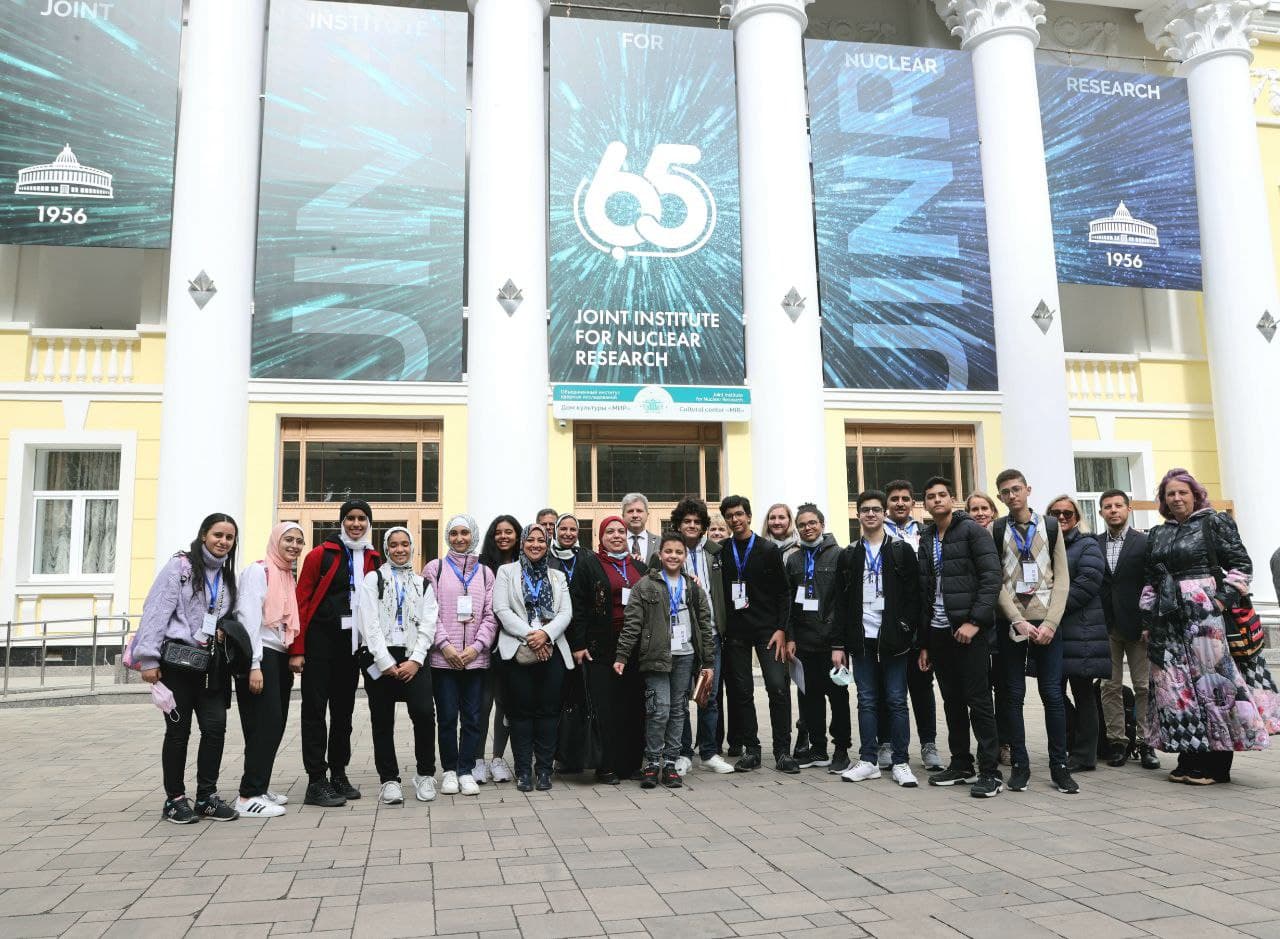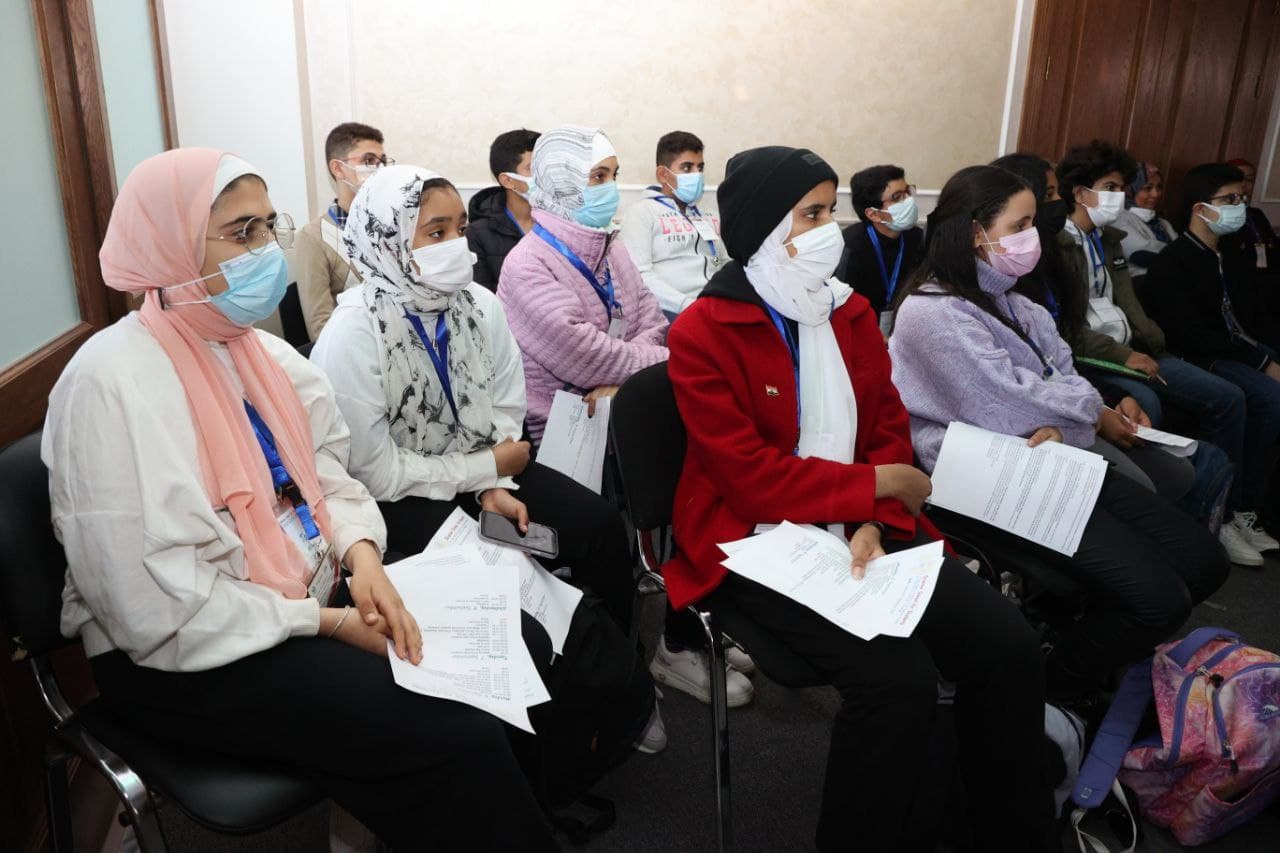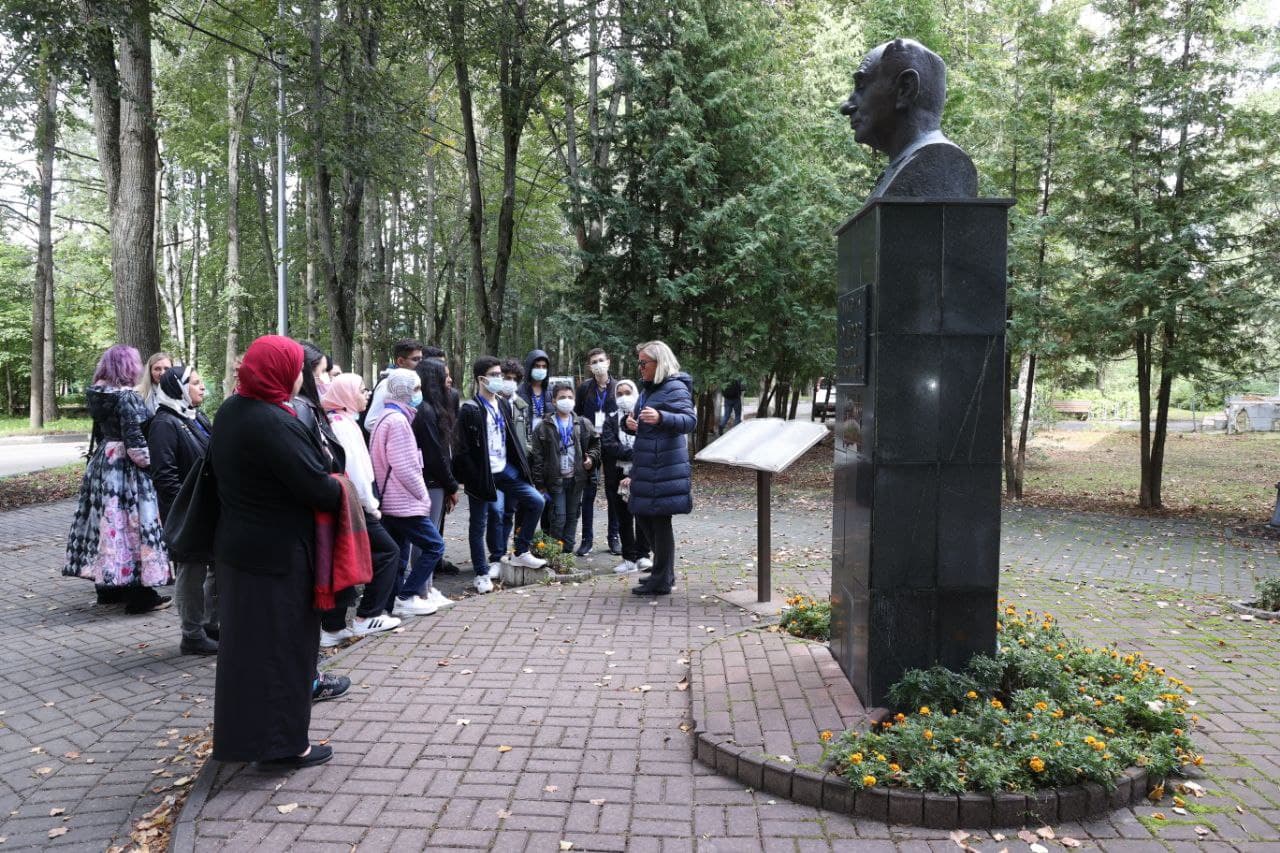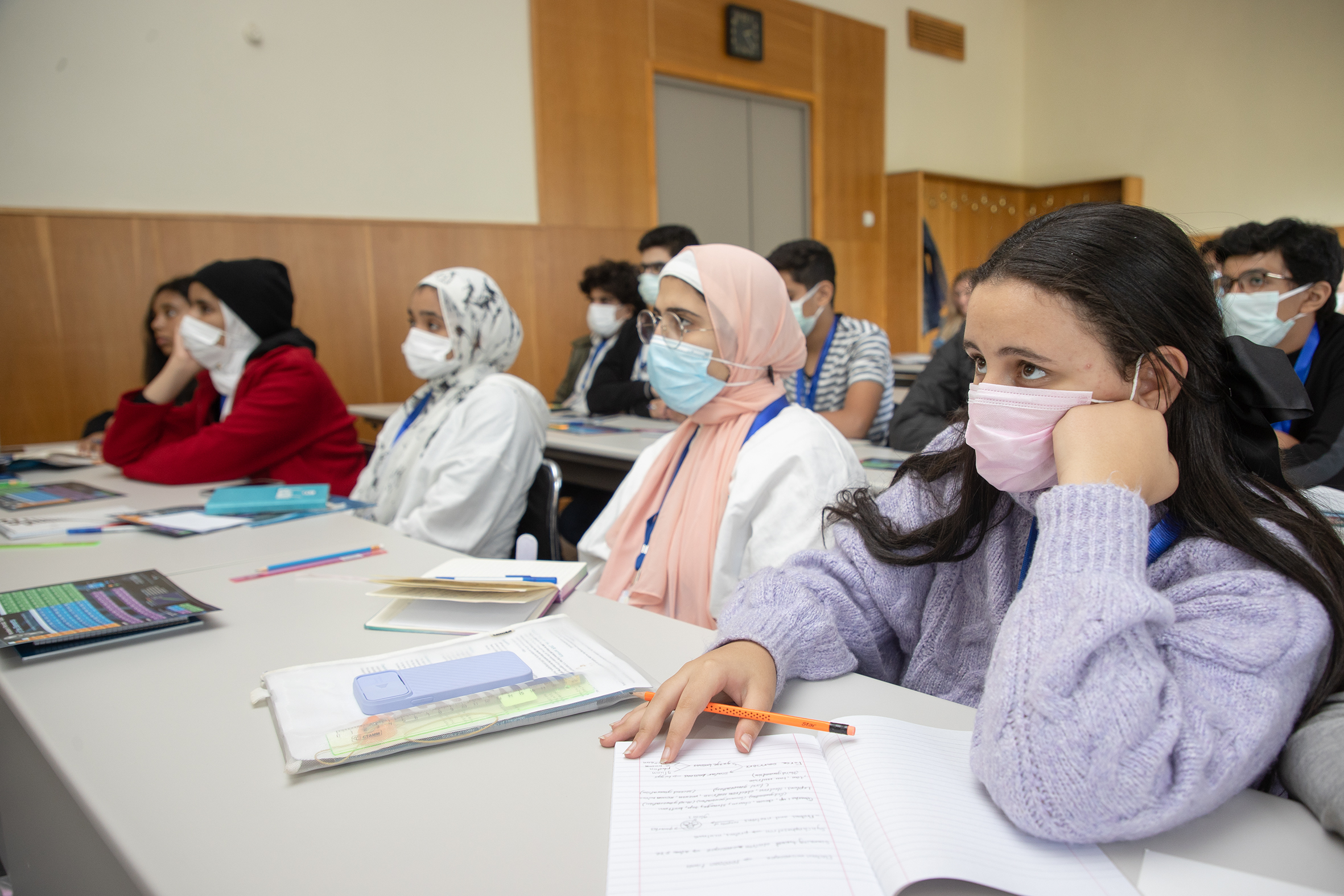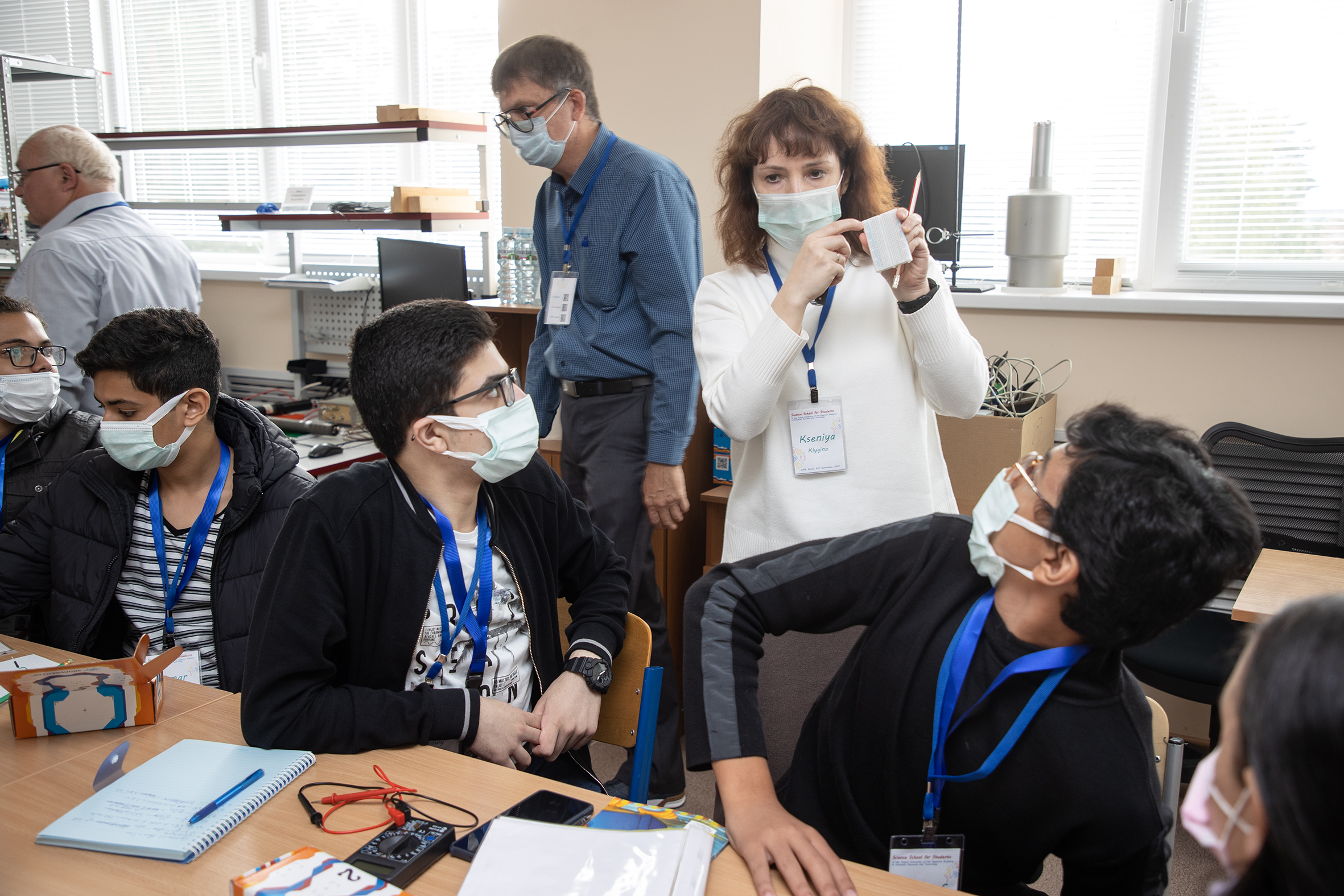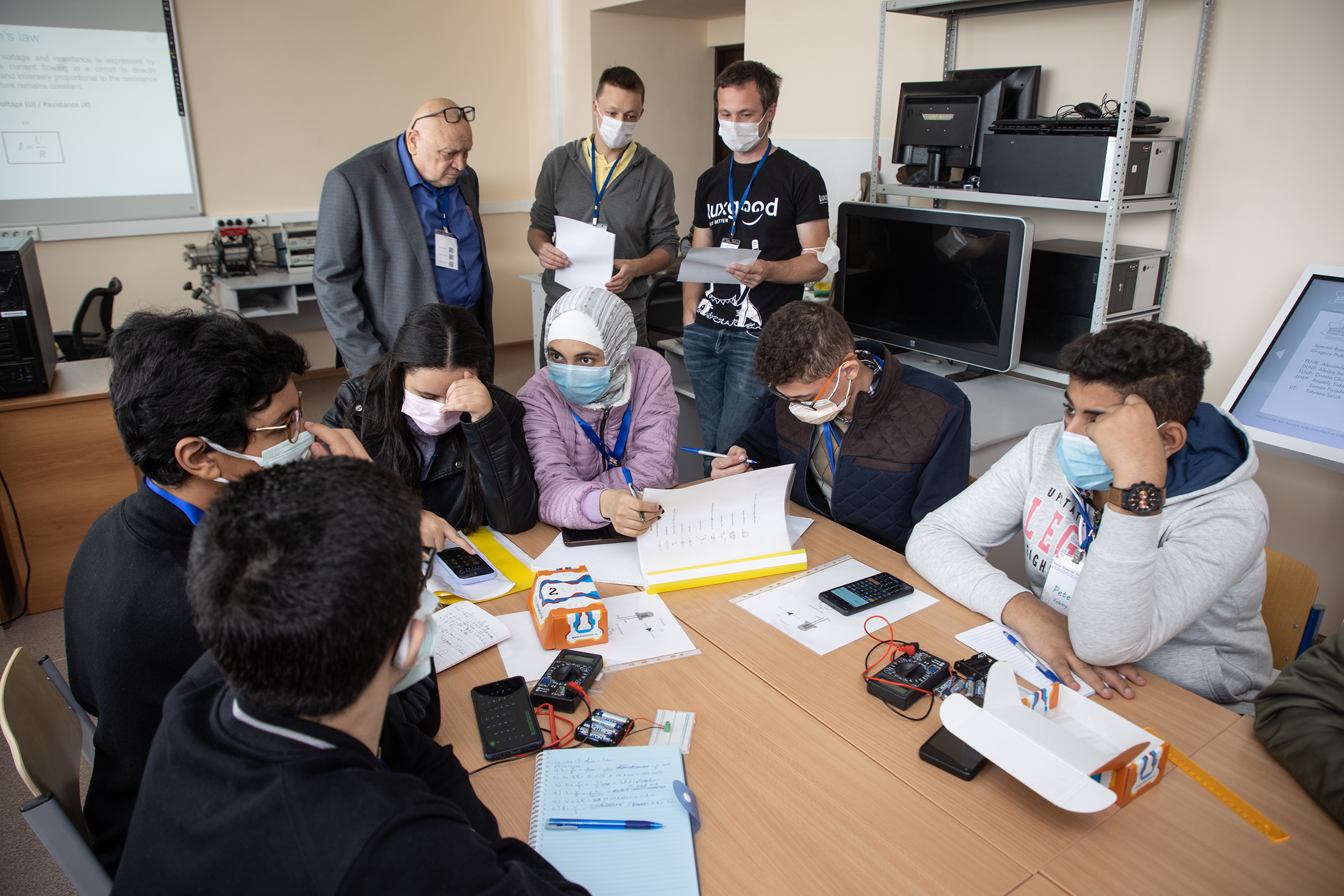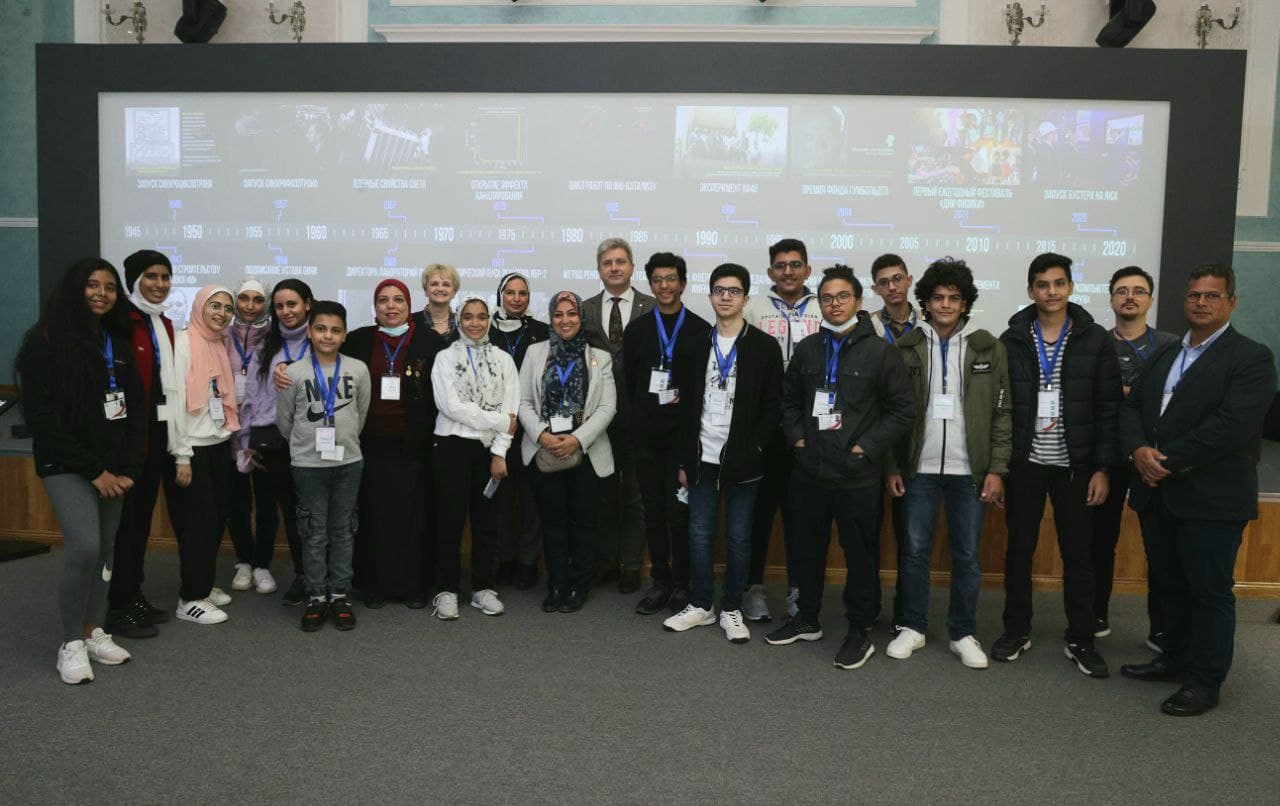Schoolchildren from Egypt getting acquainted with JINR
News, 07 September 2021
On 6 September, the Science School for Students of the School University of the Egyptian Academy of Scientific Research and Technology (ASRT) began its work. 14 students of the ASRT School University aged 13-16 arrived in Dubna to participate in the School.
200 students took part in physics competitions to become participants of the Scientific School. Only 30 of them managed to pass the first qualifying round, after which oral interviews were conducted with the candidates.
The task of the Science School is to introduce young guests from Egypt to the laboratories, research, and employees of the Institute. The programme of the event started at the interactive exhibition dedicated to the 65th anniversary of JINR, where participants and their attendants, including Vice-President of the Academy of Scientific Research and Technology Gina El-Feky, were greeted by Head of the JINR International Cooperation Department Dmitry Kamanin. He expressed hope that in the future the guests would be able to return to JINR as students to participate in the student practices of the UC and then as researchers to contribute to science. Alexander Verkheev, Deputy Director of the JINR University Centre welcomed the guests. Nikita Sidorov, a VBLHEP software engineer conducted a tour of the exhibition for the schoolchildren and introduced them to the history of the Institute. Wael Badawy, Head of the national group of Egypt in JINR, attended the event.
Visits to the Laboratory of Nuclear Reactions, the Laboratory of High Energy Physics and the Laboratory of Radiation Biology are planned within the framework of the School’s programme.
At the same time, workshops will make up the bulk of the School’s programme. The staff of the Institute will introduce the participants to the stages of the nuclear physics experiment and will show the operation of the most important equipment for detecting, collecting, and processing information in practice. During eight workshops, the participants in groups will study electrical circuits and learn about electronic components, work with oscilloscopes, control units, time-of-flight cameras, semiconductor detectors, as well as other equipment used at the Institute’s facilities. The children will even assemble their first scintillation telescope for detecting cosmic radiation. Creators of the workshops expect that this way students will not only become more familiar with the process of scientific search and working with equipment but also, in fact, participate in a real experiment. In addition to the scientific component, the programme also includes a cultural part: the guests from Egypt will have a walk around the Institute’s Part of Dubna and an excursion around Moscow.
The School will finish its work on 11 September.
Photos by Igor Lapenko
